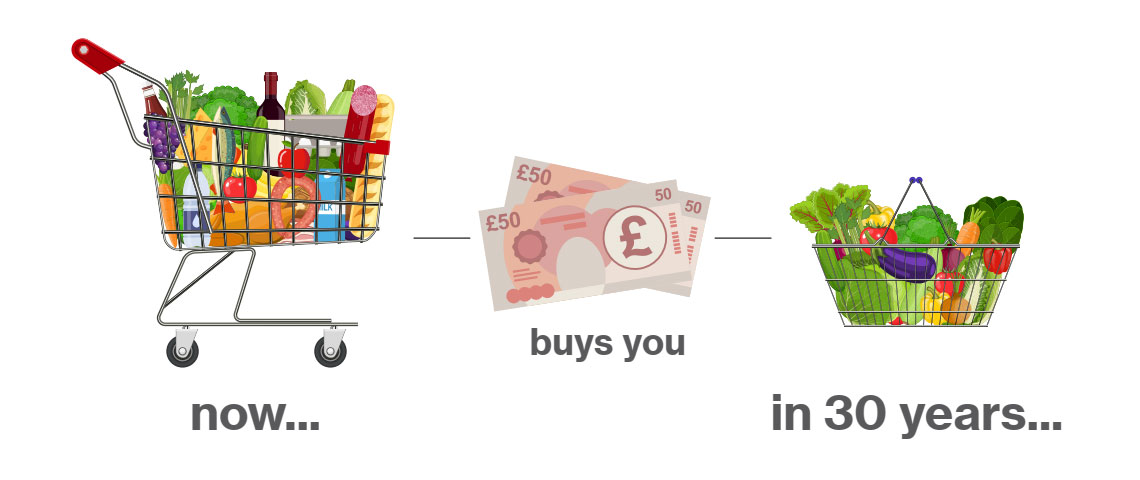The above image is a simplification of inflation, so let’s have a look at some examples of things you may commonly buy:
Example price increases
| Item | Price in February 2023 | Price if inflation is: | ||
|---|---|---|---|---|
| 1% a year | 3% a year | 5% a year | ||
| Correct as at February 2023. Source: https://wtw.bz/ons-inflation |
||||
| ItemEggs per dozen | Price in February 2023£3.18 | 1% a year£3.51 | 3% a year£4.27 | 5% a year£5.18 |
| ItemBread Sliced white 800g loaf | Price in February 2023£1.38 | 1% a year£1.52 | 3% a year£1.85 | 5% a year£2.25 |
| ItemMilk Per pint, pasteurised | Price in February 2023£0.70 | 1% a year£0.77 | 3% a year£0.94 | 5% a year£1.14 |
| ItemTea bags Per 250g | Price in February 2023£2.48 | 1% a year£2.74 | 3% a year£3.33 | 5% a year£4.04 |
| ItemPetrol Unleaded, per litre | Price in February 2023£1.48 | 1% a year£1.63 | 3% a year£1.99 | 5% a year£2.41 |
Measures of inflation
The two main measures of inflation are RPI (Retail Prices Index) and CPI (Consumer Price Index). The difference between the two varies from year to year but, on average CPI tends to be lower.
RPI
Retail Price Index
CPI
Consumer Price Index
Protecting against inflation
Depending on the option you choose at retirement, your retirement savings may have some protection against inflation.
If you buy an annuity, you can choose to protect against inflation in exchange for a lower starting income through an increasing annuity (you can learn more here).
If you choose the drawdown option you can increase the amount you withdraw to protect yourself against inflation, but your savings would run out quicker this way. You may also consider how different drawdown investment options might grow compared to inflation to protect the value of your savings whilst you are retired.
If you choose to take your savings as a cash lump sum, it's up to you to manage your money and ensure you can afford to buy the things you want and need in retirement. Having some idea of how long you may live can help with your planning, you can find out more about that here.

